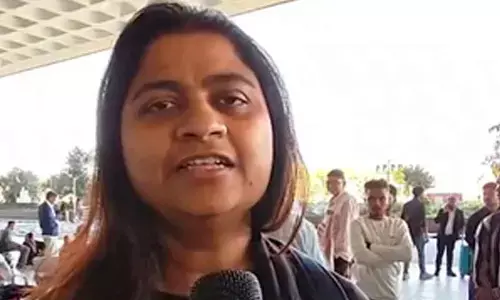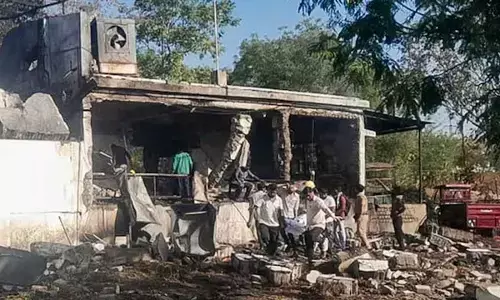There is a dire need to regulate fertility clinics

Recently, the Department of Health Research (DHR), under the Union Health Ministry, has constituted the National Assisted Reproductive Technology and Surrogacy Board (NARTSB) headed by the Union Minister of Health and Family Welfare as the chairperson.
Recently, the Department of Health Research (DHR), under the Union Health Ministry, has constituted the National Assisted Reproductive Technology and Surrogacy Board (NARTSB) headed by the Union Minister of Health and Family Welfare as the chairperson. The constitution of the Board is part of the implementation of the Assisted Reproductive Technology (Regulation) Act, 2021 and the Surrogacy (Regulation) Act, 2021 to regulate Assisted Reproductive Technology (ART) clinics, banks and surrogacy in the country.
The ART (Regulation) Act was notified by the Central government on December 21, 2021and the Surrogacy (Regulation) Act was notified on December 25, 2021. Under the Act, the NARTSB has powers to advise the Central government on policy matters relating to the ART, to review and monitor the implementation of the Act, rules and regulations, to lay down code of conduct to be observed by persons working at clinics and banks, to set the minimum standards of physical infrastructure, laboratory and diagnostic equipment and expert manpower to be employed by the clinics and banks. The board also has to oversee the performance of various bodies constituted under the Act and supervise the functioning of the National Registry and liaison with the State Boards and pass orders as per the provisions made under the Act.
Regulation of infertility clinics has been a major issue in the country for a long time now as the country witnessed mushrooming of infertility clinics ever since the successful birth of the world's first baby conceived by IVF and embryo transfer on July 25, 1978, in the UK. The world's second IVF baby was born 67 days later on October 3, 1978 in Kolkata. But, India's first scientifically documented IVF baby was, however, born on August 6, 1986 in Mumbai through the support of the Indian Council of Medical Research (ICMR), the apex body in India for the formulation, coordination and promotion of biomedical research, and is one of the oldest medical research bodies in the world.
However, the advent of any new technology that affects mankind raises several technical and moral dilemmas and poses many ethical and technical challenges. And ART cannot be an exception. For the last more than three decades, the country witnessed the establishment of thousands of infertility clinics. In the Indian context where barrenness is looked down upon, infertile patients looked up to these infertility clinics as the last resort to parenthood. Many of these technologies require enormous technical expertise and infrastructure. But, in the absence of a regulation, many of these clinics did not have the adequate trained manpower and infrastructure facilities to deliver these highly sophisticated technologies and even services provided by some of these clinics were highly questionable. In several cases, the infertile couples were cheated by providing relatively simple procedure and charged for complicated and expensive procedures.
Against this background, the Indian government felt the need for bringing a Bill for regulating the infertility clinics across the country. So, after years of discussions and deliberations, the Indian government in 2020 gave its approval to the much-awaited Assisted Reproductive Technology (ART) Regulation Bill to regulate the thousands of infertility clinics spread across the country which have so far remained unregulated in the absence of any law. By bringing the bill, the government wanted to ensure that infertile couples are assured and confident of ethical practices in these infertility clinics.
The bill provided a national framework for the accreditation, regulation and supervision of infertility clinics that have mushroomed across the country during the last three decades. Under the new law, all infertility clinics, ART banks and research organizations using human embryos are required to register themselves with the registration authority. Till then, anyone could open infertility or ART clinics in any part of the country as no permission was required for it. It is a fact that in the recent times, India has become one of the major centres of fertility treatment industry, with reproductive medical tourism becoming a significant activity, mainly because of higher success rates and affordable cost.
The infertility clinics in India offer nearly all ART services like gamete donation, intrauterine insemination, in vitro fertilisation, intracytoplasmic sperm injection, pre-implantation genetic diagnosis, and gestational surrogacy. However, in spite of so much activities going on in India, there was no standardisation of protocols and reporting of illegal cases was quite inadequate. In view of this scenario, it has become important to regulate the functioning of these clinics to ensure that the services provided are ethical and that the medical, social and legal rights of all those concerned are protected. Definitely, the accreditation standards in the sector will provide patients access to safe infrastructure, right technology, global SOPs and processes backed by qualified clinical talent.
Hopefully, the new law will lead to a more organised sector in India in line with global standards and practices, and will protect the affected women and children from exploitation. Now that the government has recently constituted the National Assisted Reproductive Technology and Surrogacy Board, it will give new hope to thousands of infertile couples in the country.








